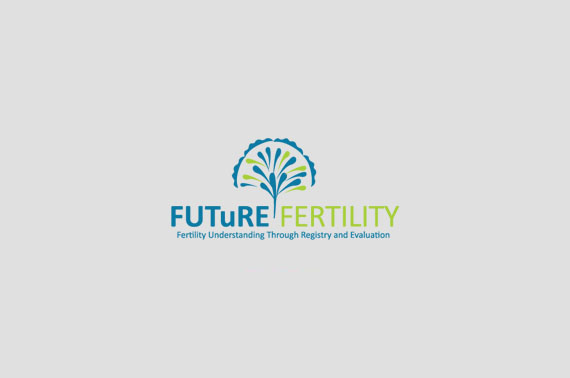Global Framework for Oncofertility Care

Interview with FUTuRE FERTILITY Study and G-Force: Global Framework for Oncofertility Care
The Alliance for Fertility Preservation recently had the opportunity to sit and speak with Brigitte Gerstl, the International Program Manager of FUTuRE FERTILITY Study and G-Force: Global Framework for Oncofertility care.
Despite international evidence about the benefits of fertility preservation and current national and international guidelines, there are several barriers that have prevented the implementation of equitable fertility preservation practice around the world.
These barriers include a lack of referral pathways and models of care for oncofertility services, the need for more collaborations between cancer and fertility doctors, inequitable access based on cost and a lack of oncofertility training. There is also no consensus about the best way to deliver oncofertility information to patients. Competencies are used by health care services and health care providers to ensure that they develop knowledge, skills and processes to deliver services of a high standard and this includes suitable models of care and referral pathways.
The objectives of this study are to develop an international multidisciplinary oncofertility medical and psychosocial competency framework, which will enable the development and implementation of fertility preservation models of care, referral pathways and professional development for oncofertility services.
Their study involves completing an online questionnaire takes approximately 30 minutes to complete. It involves participants rating the quality of fertility preservation care plus they have the opportunity to add any additional comments on their treatment experience in the course of completing the survey.
As we often ask when speaking to leaders in the fertility preservation field, we asked Ms. Gerstl what barriers keeps so many from pursuing preservation. She explained that these barriers may include:
- Cost – it is very expensive, particularly in Australia, for a patient to pursue and uptake fertility preservation. Fertility preservation can cost anywhere from between $5000-$15000 depending on the clinic undertaking the fertility preservation procedure. Storage costs can be hefty as well, particularly for patients on the younger side, say at 15 years being diagnosed with cancer and not using their stored gametes or gonadal tissue for more than 15 years (if the average age of having babies in Australia is 30.1 years).
- Cancer doctors do not believe it is their core business to discuss fertility- the literature supports there are oncologists who do not believe that having discussions around how a patient’s fertility may be affected by gonadotoxic therapy is their core business. The FUTuRE Fertility research study encourages oncologists not to have these discussions but refer to a local fertility specialist for in-depth discussions around fertility preservation options.
- Cultural reasons –diverse cultures, particularly the views and beliefs of Middle Eastern cultures, do not believe therefore would not be interested in any discussions around fertility preservation. Additionally, the Catholic religion also does not advocate for fertility preservation and so if a patient receives treatment at a hospital that has Catholic values that underpin the philosophy of their service, thus they will not refer for fertility preservation.
- The patient is too sick to harness the short window period to access fertility preservation. A patient usually gets a 10-day window period before starting cancer treatment to access the opportunity for fertility preservation. Sometime the patient is too unwell and must start cancer treatment immediately so fertility preservation would be inappropriate to offer. Additionally, a patient is palliative and the clinician does not feel that it is appropriate to have discussions around fertility preservation given the critical condition of the patient.
- Clinician awareness of fertility preservation – there are many clinicians who are unaware of current international guidelines surrounding fertility preservation and are equally unaware of the different fertility preservation options, strategies and services available as well as local fertility clinics to refer patients.
It’s important to remember that this is not just a domestic issue. It’s an international issue and concern. While there are some countries that have robust Oncofertility programs implemented into their health care systems and hospital practice and other countries are in the development stage for implementation, there are many more that that have no oncofertility systems or practices in place.
This is why FUTuRE Fertility is running two research studies (mentioned below) that have been or will be integral in assisting with changing the landscape of Oncofertility globally. Please feel free to visit their website: www.futurefertility.com.au/
AS for The FUTuRE Fertility Research Program runs a number of ongoing biological, physiological, psychological and socio-cultural research studies.
STUDY INFORMATION: The FUTuRE Fertility research study has set up the world’s first international Oncofertility registry which aims to track the fertility outcomes of cancer patients from the point that the patients are diagnosed with cancer, to assist oncologists, for the very first time, with providing accurate risk projections to cancer patients/family members and partners about the patient’s chance of having a biological child(ren) after treatment and in the survivorship period. As this registry study collects prospective data we will be able to examine and report on the risks that gonadotoxic treatment has on a patient’s fertility by gender, age and cancer treatment. The FUTuRE Fertility registry is open for patient enrolment in most states around Australia, New Zealand, America and India. Additionally, the Australasian Oncofertility Registry has currently been instrumental in effectively providing open lines of conversation for referral from cancer patient to reproductive specialist. Outcomes from the Models of Care study (as mentioned above) will allow us to report on the importance for global development and implementation of fertility preservation models of care, improve referral pathways and professional development for oncofertility services.
Share This Post